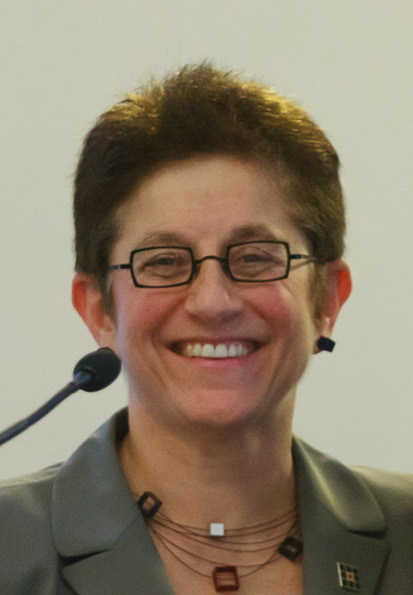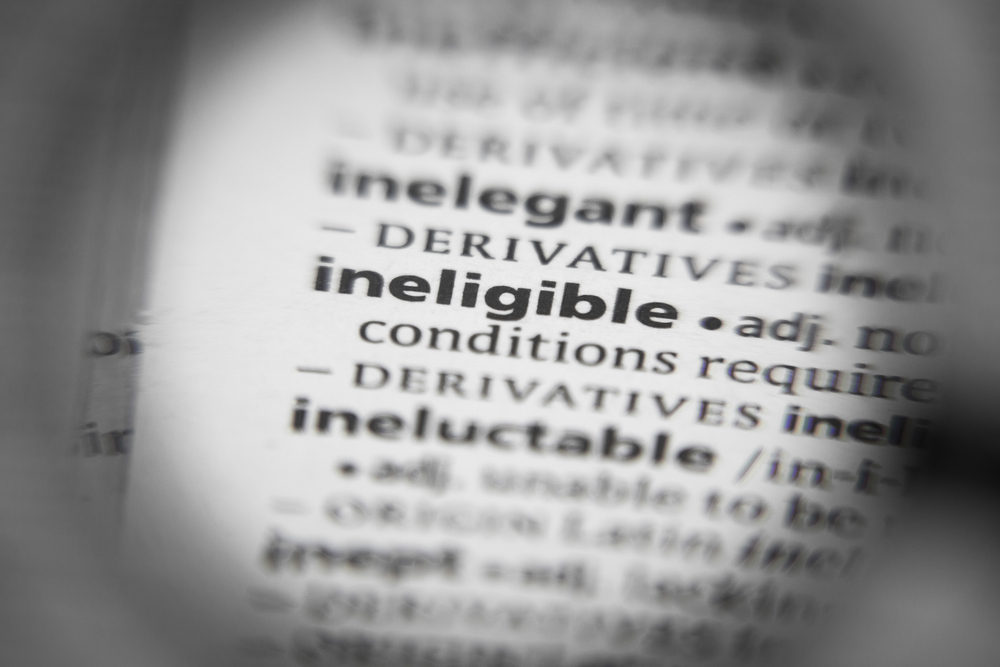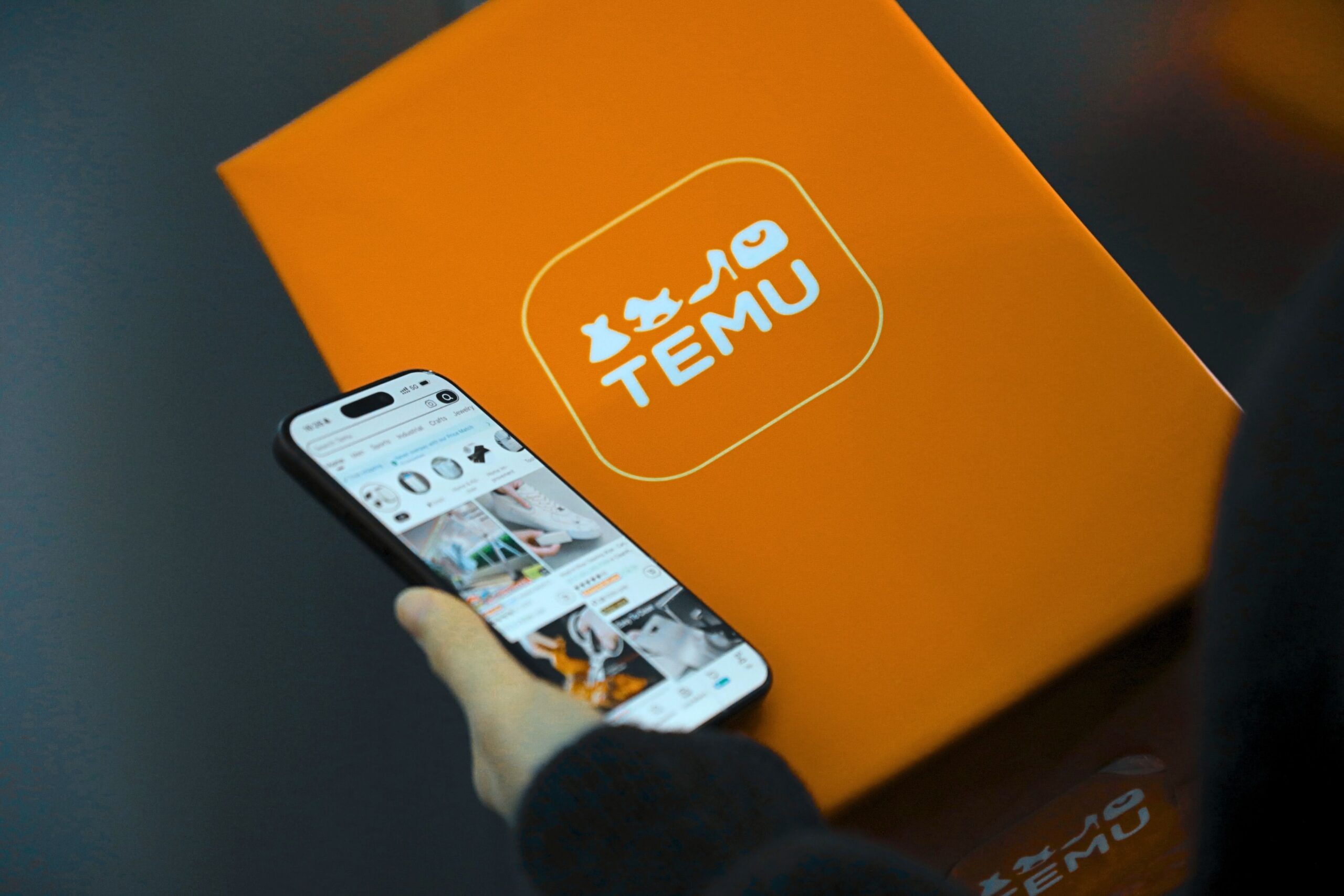“[Sohn] is a radical open-content activist with no respect for intellectual property rights. As an activist, Ms. Sohn has consistently worked against commonsense measures that would crack down on illegal piracy.” – Senator Tillis letter to President Biden
 On November 30, Senator Thom Tillis (R-NC) wrote a letter addressed to President Joe Biden asking Biden to withdraw the nomination of Gigi Sohn, a co-founder of the open Internet advocacy group Public Knowledge, to serve as a commissioner with the Federal Communications Commission (FCC). Tillis is one of a growing number of Republican lawmakers who are speaking out strongly against Biden’s nomination of Sohn, who previously served as a senior staffer to former FCC Chairman Tom Wheeler during the Obama Administration.
On November 30, Senator Thom Tillis (R-NC) wrote a letter addressed to President Joe Biden asking Biden to withdraw the nomination of Gigi Sohn, a co-founder of the open Internet advocacy group Public Knowledge, to serve as a commissioner with the Federal Communications Commission (FCC). Tillis is one of a growing number of Republican lawmakers who are speaking out strongly against Biden’s nomination of Sohn, who previously served as a senior staffer to former FCC Chairman Tom Wheeler during the Obama Administration.
Tillis’ letter to President Biden certainly pulls no punches in assessing the likely impact of Sohn’s nomination on copyright owners especially. “[Sohn] is a radical open-content activist with no respect for intellectual property rights,” Tillis wrote. “As an activist, Ms. Sohn has consistently worked against commonsense measures that would crack down on illegal piracy. She has even testified before Congress that ‘piracy has absolutely no effect on [music] prices whatsoever.’”
Tillis, Graham, Wicker Part of Growing Chorus Against Sohn’s Nomination
Along with focusing on Sohn’s time as a staffer for Tom Wheeler at the FCC, during which time she was actively involved in efforts to support net neutrality and open set-top boxes from proprietary controls, Tillis noted that Sohn has recently served on the board of directors for the streaming TV service, Locast. In early September, U.S. District Judge Louis Stanton of the Southern District of New York ruled that Locast was not a nonprofit exempt from copyright liability for retransmissions of TV broadcasts to subscribers online. Soon after that ruling, Locast shuttered its operations. “Ms. Sohn… likely profited from this copyright piracy and intellectual property theft,” Tillis wrote. He added that Sohn’s likely impact on the FCC would be deleterious to 87% of film and television companies that employ less than 10 people, despite Sohn’s insistence that only large media corporations are hurt by anti-copyright activism.
Tillis is one of many Republican voices on Capitol Hill who have taken umbrage at President Biden’s selection of Sohn to complete the board of commissioners at the FCC and break the current 2-2 Republican/Democrat deadlock of commissioners at the agency. A Twitter post earlier this month on the official account for Senator Lindsey Graham (R-SC) indicated Graham’s feelings that Sohn is an “unqualified nominee and hack[],” “a complete political ideologue who has disdain for conservatives” and he vowed that he would push back against Sohn’s nomination. A Politico article published on November 1 quoted concerns over Sohn’s nomination from Senators John Thune (R-SD) and Roger Wicker (R-MS), both of whom were also pessimistic on Sohn’s likely impacts on the FCC based on her past activism on copyright and net neutrality issues.
Sohn on FCC Likely Indicates Return to Obama-Era Net Neutrality Debate
While not an intellectual property issue per se, the debate over net neutrality during the mid-2010s played out along similar lines to the patent reform debate by favoring the interests of major corporations over small businesses. While many net neutrality advocates portrayed the FCC’s Open Internet Order as a necessary measure for ensuring that monopolistic Internet service providers (ISPs) could not exploit consumers who need Internet access, net neutrality received very public support from Netflix, Facebook and other media and Internet companies with subscriber bases that dwarf most ISPs and who benefitted from the inability of ISPs to charge extra for more bandwidth use. At a time when the United States should have instead been supporting increased broadband infrastructure for rural and impoverished communities across the country, the Open Internet Order instead had the effect of reducing capital expenditures for broadband infrastructure among all ISPs, slowing Internet access among the communities that need it the most to join the Internet age. Sohn’s return to the FCC as a commissioner would likely breathe new life into a net neutrality enforcement campaign during the Biden Administration.
Sohn’s Public Knowledge policy institute has also advocated for copyright reforms in a way that mirrors much of the discussion around patent reform, which had sought to improve “quality” and promote “balance” in ways that have tipped the scales entirely in favor of efficient infringers. Public Knowledge’s copyright page pays lip service to the importance of copyright but is clear on the organization’s belief that “too much copyright restriction can actually hurt innovation.” Public Knowledge was pessimistic regarding the impacts of the U.S. Copyright Office’s May 2020 study on Section 512 of the Digital Millennium Copyright Act (DMCA), which had only advocated for minor changes to safe harbor provisions that had come to immunize online platforms from copyright liability more than originally intended. Public Knowledge spoke out against a draft DMCA modernization bill from Senator Tillis that incorporated recommendations from the Section 512 study, calling the bill a “radical[] overhaul” that would “significantly curtail online speech.” Public Knowledge even raised concerns about the Copyright Claims Board, created by the CASE Act in late 2020, as an “unaccountable ‘small-claims’ court” despite the fact that defendants in copyright small claims actions before that board have the opportunity to opt out from those entirely voluntary proceedings.
As of the time of this writing, Sohn’s nomination is currently being debated by the Senate Commerce Committee during an executive session and nominations hearing being webcasted on the committee’s website. If confirmed, Sohn’s presence on the FCC and the tiebreaking Democratic vote she would be able to provide likely presages a strong return to many of the net neutrality and some of the IP policies that marked the tenor of the Obama Administration.

![[IPWatchdog Logo]](https://ipwatchdog.com/wp-content/themes/IPWatchdog%20-%202023/assets/images/temp/logo-small@2x.png)

![[Advertisement]](https://ipwatchdog.com/wp-content/uploads/2026/02/Junior-AI-Feb-10-2026-sidebar-day-of-webinar-700x500-1.jpg)
![[Advertisement]](https://ipwatchdog.com/wp-content/uploads/2026/02/Anaqua-Feb-12-2026-sidebar-700x500-1.jpg)
![[Advertisement]](https://ipwatchdog.com/wp-content/uploads/2026/02/Ankar-AI-Feb-17-2025-sidebar-700x500-1.jpg)
![[Advertisement]](https://ipwatchdog.com/wp-content/uploads/2025/12/LIVE-2026-sidebar-regular-price-700x500-1.jpg)







![[Advertisement]](https://ipwatchdog.com/wp-content/uploads/2021/12/WEBINAR-336-x-280-px.png)
![[Advertisement]](https://ipwatchdog.com/wp-content/uploads/2021/12/Ad-4-The-Invent-Patent-System™.png)







Join the Discussion
12 comments so far.
Harry Granz
December 6, 2021 11:53 pmTo put it another way that might help Greg: it’s not so much about who will pay but rather it’s about what can be paid for.
The history of net neutrality is… interesting. It was essentially the law since the beginning of the internet more or less by default, and when the FCC began looking more closely at ISP operations they just kind of went with it. However, this was technically an error since they had classified internet service under Title I, not Title II – the latter is what is necessary for net neutrality to be implemented barring the introduction of specific carveouts.
This suited ISPs just fine, since Title II classification would bring with it a whole host of other regulations that none of them wanted.
Until Verizon went and mucked it all up during Obama’s presidency, that is. They forced the issue, arguing correctly that the FCC didn’t have the authority to enforce net neutrality so long as internet service was being regulated under Title I. They were essentially calling that administration’s bluff, thinking that Obama’s FCC would sooner drop net neutrality than reclassify under Title II. They were, as people here may remember, incorrect.
In fact, they’re harder to find now but it’s still possible to search up news articles from the time of CEOs of other ISPs releasing statements in support of the FCC’s then-existing regulations. A lot of them were very annoyed with Verizon about losing them their light-touch Title I regulation, after all.
Greg DeLassus
December 6, 2021 10:33 amThe argument with “net neutrality” isn’t one about who will
pay but…, Netflix
shouldn’t be able to pay ISPs so that their movies stream flawlessly
while an upstart’s movies have to wait for Netflix’s movies.
Got it. So the net neutrality debate is not about who will pay, but rather it is about who will pay. Glad we cleared that up. 😉
MaxDrei
December 5, 2021 09:39 amIf the problem is as stated in the article (opening up high speed access to the net for those up to now unable to enjoy it) what is the solution? Who shall pay for the costs of delivering that missing infrastructure?
Let’s think about natural monpolies and private ownership of them. Is it OK to allow a de facto corporate monopoly on fresh air, fresh water, the administration of justice (or waste water removal for that matter)? How about access to broadband data? Shall those in the country be at the mercy of the interests of the shareholders of one corporate provider charging monopoly rates for data conduit access?
Here in Germany, this is a hot topic for the incoming centre-left government after 16 years of Merkel-ian centre right neglect. What will the new government do? I have no idea but they have promised to do something. They wil be watching carefully what the Biden administration does. That much goes without saying.
In the end, of course, the consumer must pay. But who decides which consumers shall pay what amounts?
Night Writer
December 4, 2021 01:04 pm@1 & 3
“net neutrality.” I don’t think that what Greg is saying is exactly right. The argument with “net neutrality” isn’t one about who will pay but one that favored providers should not get precedent or be able to buy precedent over other providers. As an example, Netflix shouldn’t be able to pay ISPs so that their movies stream flawlessly while an upstart’s movies have to wait for Netflix’s movies.
That is what the issue is about. That those that are plugging into the internet get equal access to the consumers. I think net neutrality is a good idea.
Anon
December 4, 2021 12:58 pmB-b-b-but Equity…
/s
Greg DeLassus
December 3, 2021 03:58 pmCan one of the far-left commenters explain the appeal [of net neutrality]?
I do not know that I would describe myself as “far” left, but as a man of the left, I will take a stab at an explanation. The net neutrality fight is predicated on an assumption that of course consumers will not pay for their own data usage (in the way in which you pay for the kWhrs you run up on your electric meter, or the gallons that run through your water meter). Instead, we take it as a given that the market will demand unlimited data plans at a fixed price.
If we proceed from the assumption that data will be consumed on an all-you-can-eat, one-price basis, then we need a rule for who bears the loss when consumers paying on an all-you-can-eat model consume (in aggregate) more than they have paid (in aggregate). There are really only two candidates for who to leave holding the bag: (1) the content creators who create the demand for data; or (2) the network carriers along whose networks the data flow.
“Net neutrality” is just another way of saying “#2 should bear the loss.” I think that there are two reasons why most of my fellow lefties prefer #2. The better of the two reasons is that the network carriers set the prices for the unlimited data plans, so if they are setting the price at a rate that does not cover the costs for the all-you-can-eat data buffet, they are in a better position than are group #1 to correct that problem. The second (and less admirable) reason is that group #1 are an important part of the left’s electoral coalition, and almost any political coalition—when faced with the choice “should we pay for this, or should that other guy?”—will advocate for “that other guy should pay.”
I think that the whole debate is premised on a flawed presumption. I think that consumers should pay for data like we pay for electricity or water—use more, pay more. In that world, the net neutrality debate essentially disappears, because nothing is really at stake. Unfortunately, that does not seem to be whither we are headed.
Raymond Van Dy
December 3, 2021 12:18 pmI concur that this is a great article about the huge issues at play. I truly hope that this nominee is not reflective of the Biden Administration’s distaste for intellectual property. Commerce Secretary Raimondo, an excellent pick, spoke so highly about IP many months ago, but she seems to be silenced of late in view of Biden’s indication of the vaccine patent giveaway. Perhaps the Administration is at war with itself on IP. With the extraordinary IP and societal issues regarding the Internet, the Senate must carefully consider this nominee, and hopefully refuse her nomination – at least for her positions on piracy.
B
December 3, 2021 07:24 amGreat article, Steve.
That said, I’m absolutely baffled at the Dem love and commitment for “net neutrality.” Can one of the far-left commenters explain the appeal?